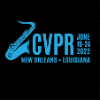【计算机类】适中难度会议/专刊截稿信息5条
计算机科学与技术
Sustainable Computing
Special Issue on Recent Advances on Sustainability for green Cloud and Fog Computing
全文截稿: 2018-01-30
影响因子: 1.8
中科院JCR分区:
• 大类 : 工程技术 - 4区
• 小类 : 计算机:硬件 - 4区
• 小类 : 计算机:信息系统 - 4区
网址: www.journals.elsevier.com/sustainable-computing
Scope: The substantial growth of the Sustainable computing using Cloud and Fog and mobile edge computing has enabled great expansions in developing cross-thematic applications and providing necessary computation power to perform data analytics and present new knowledge to city stakeholders for awareness raising, city planning, green computing, policy development and decision making. Combining Sustainable computing with Cloud and Fog computing is an alternative approach for increasing sustainability of the system such as high-performance visual processing techniques providing opportunity to intuitively present temporal and geo-coded information from neighborhood scale to city or city-region scale and fosters innovation, co-creation and co-designing sustainable future cities. However, execution of resource management in cloud systems is still encountering a few challenges, including the bottlenecks of the Web server capacities and task assignments in the heterogeneous cloud. The unstable service demands often result in service delays, which embarrass the competitiveness of the enterprises. Moreover, there are growing concerns over the control ceded to large organizations, especially the lack of information privacy. Furthermore, the data centers required for Sustainable Computing are growing exponentially, creating an ever-increasing carbon footprint and therefore raising environmental concerns.
Therefore, it essentially to reformulates the Internet to reflect its current uses and scale, while maintaining the original intentions for sustainability in the face of adversity. Including extra capabilities embedded into the infrastructure which would become as fundamental and invisible as moving packets is today. Moreover, as in every new technology, some challenges face the vision of sustainability for green cloud and fog Computing. This special issue aims to investigate the opportunities, requirements and recent advances on sustainability for green cloud and fog computing. In addition, it seeks for novel contributions that help mitigating sustainable computing challenges.
Specific topics include, but not limited to, the following:
- Energy efficiency for applications running on green clouds
- Quality of Service (QoS) improvements techniques in green clouds
- Sustainable future generation enterprise deep learning based on Cloud Computing
- Resources and power management in sustainable cloud and fog networks
- Multi-party machine learning in sustainable cloud and fog networks
- Security, privacy and trust of green Cloud computing and data centers
- Green Cloud and fog Computing and performance evaluation
- Sustainable Cloud computing resources allocation and management
- Energy Efficient routing protocols in cloud and fog networks
- Sustainability and disposal of networking resources in cloud and fog networks
- Energy-efficient protocols and algorithms in Cloud and fog networks
- High-performance and parallel learning in sustainable computing
- Network communication energy requirements and solutions in green clouds and fog network.
- Attacks affecting cloud & fog computing and countermeasures using energy parameter
- Privacy-preserving decision-making, learning and classification in sustainable computing
- Energy-efficient data management in cloud and fog computing
计算机体系结构,并行与分布式计算
Euro-Par 2018
International European Conference on Parallel and Distributed Computing
摘要截稿: 2018-02-09
全文截稿: 2018-02-16
开会时间: 2018-08-27
会议难度: ★★★
CCF分类: C类
会议地点: Turin, Italy
网址:http://www.europar2018.org
Euro-Par is the prime European conference covering all aspects of parallel and distributed processing, ranging from theory to practice, from small to the largest parallel and distributed systems and infrastructures, from fundamental computational problems to full-fledged applications, from architecture, compiler, language and interface design and implementation, to tools, support infrastructures, and application performance aspects. Euro-Par unique organization into topics provides an excellent forum for focused technical discussion, as well as interaction with a large, broad and diverse audience.
We invite submissions of high-quality, novel and original research results in areas of parallel and distributed computing covered by the following topics:
-Support Tools and Environments
-Performance and Power Modeling, Prediction and Evaluation
-Scheduling and Load Balancing
-High Performance Architectures and Compilers
-Parallel and Distributed Data Management and Analytics
-Cluster and Cloud Computing
-Distributed Systems and Algorithms
-Parallel and Distributed Programming, Interfaces, and Languages
-Multicore and Manycore Methods and Tools
-Theory and Algorithms for Parallel Computation and Networking
-Parallel Numerical Methods and Applications
-Accelerator Computing
软件工程
DMSVIVA 2018
International DMS Conference on Visualization and Visual Languages
全文截稿: 2018-03-01
开会时间: 2018-06-29
会议难度: ★★
CCF分类: 无
会议地点: San Francisco, USA
网址:http://ksiresearchorg.ipage.com/seke/dmsviva18.html
The main theme of the 24th International DMS Conference on Visualization and Visual Languages (DMSVIVA2018) is Soft Computing in Visualization and Visual Languages.
The conference organizers seek contributions of high quality papers, panels or tutorials, addressing any novel aspect of sentient multimedia systems that significantly benefits from the incorporation/integration of multimedia data (e.g., visual, audio, pen, voice, image, etc.), especially in visual languages and distance education technologies, for presentation at the conference and publication in the proceedings. Both research and case study papers or demonstrations describing results in research area as well as industrial development cases and experiences are solicited. The use of prototypes and demonstration video for presentations is encouraged.
The DMS conference is an international conference series, which covers a wide spectrum of paper presentations, technical discussions and demonstrations in the fields of visualization, visual languages and distributed multimedia computing.
Selected Papers of DMSVIVA2018 will be published in special issues of JVLC and VLSS. The Journal of Visual Languages and Computing (JVLC), and the Journal of Visual Languages and Sentient Systems (VLSS), will each publish selected papers of DMSVIVA2018 as special issues. The conference will publish a proceedings available in print and online to authors and conference attendees. The VLSS special issue will be published independently in 2018.
软件工程
SE-CLOUD 2018
Software Engineering for Service and Cloud Computing
全文截稿: 2018-03-13
开会时间: 2018-07-26
会议难度: ★★
CCF分类: 无
会议地点: Porto, Portugal
网址:http://www.se-cloud.scitevents.org/
Service oriented software engineering and cloud software engineering have emerged to address software as a set of services which deal with user needs. At the same time, we have seen a large number of downfalls due to software failures. This was in part due to the lack of adopting well designed software engineering practices. Now, there is a need to revise these practices given the emergence of service and cloud computing, which will revolutionize the next generation of software engineering. This conference offers a venue for presenting new approaches, processes, techniques, technologies and applications based on the paradigm of Cloud Software Engineering.
CONFERENCE AREAS
-Requirements Engineering for Cloud Computing
-Cloud Software Engineering and Project Management
-Cloud Design and Test Principles
-Software Engineering Innovative Applications
计算机体系结构,并行与分布式计算
Computers & Electrical Engineering
Special Section on Artificial Intelligence and Robotics
全文截稿: 2018-03-30
影响因子: 1.57
中科院JCR分区:
• 大类 : 工程技术 - 4区
• 小类 : 计算机:硬件 - 4区
• 小类 : 计算机:跨学科应用 - 4区
• 小类 : 工程:电子与电气 - 4区
网址: http://www.journals.elsevier.com/computers-and-electrical-engineering/
The integration of artificial intelligence and robotic technologies has become a topic of increasing interest for both researchers and developers from academic fields and industries worldwide. It is foreseeable that artificial intelligence will be the main approach of the next generation of robotic research. The explosive number of artificial intelligence algorithms and increasing computational power of computers has significantly extended the number of potential applications for robotic technologies. It has also brought new challenges to the artificial intelligence community.
Authors of substantially expanded versions of papers presented at ISAIR 2017 are invited to submit their papers. The topics of interest are strictly limited to:
- Audio Multimedia Learning
- Cross Multimedia Learning
- Cloud Multimedia Processing for Robotics
- Deep Learning for Robot Vision
- HPC for Deep Learning
- Multimedia for Robot Manipulation
- Multimedia for Robot Navigation
- Multimedia Fusion for Robotics
- Multimedia Communications for Robots
- Multimedia Compression for Robots
- User Experience for Multimedia Systems
- Wireless Multimedia Robots
- Robotics and Mechatronics
- Robust and Nonlinear Control
下载Call4Papers App,获取更多详细内容!


登录查看更多
相关内容
Euro-Par:European Conference on Parallel and Distributed Computing。
Explanation:欧洲并行和分布式计算会议。
Publisher:Springer。
SIT: http://dblp.uni-trier.de/db/conf/europar/
专知会员服务
14+阅读 · 2019年11月22日
Arxiv
16+阅读 · 2020年1月2日





